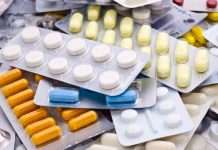
The recent ban on the production, sales and distribution of alcoholic beverages in sachets and PET bottles, by the National Agency for Food and Drug Administration and Control (NAFDAC), is a step in the right direction. On 5 February, 2024, the Director General of NAFDAC, Prof. Moji Adeyeye, in a press conference, announced the agency’s decision to outlaw the products, following the expiry date of 31 January, 2024, for the phasing out of products in these categories.
Adeyeye cited, as justification for the ban, the need to address the public health concerns associated with the consumption of these products, especially considering their high alcohol content. Moreover, their pocket-friendly sizes and prices, make them easily accessible to vulnerable populations, minors, and transporters, thereby constituting a menace to the society.
The NAFDAC boss further referenced the World Health Organisation (WHO)’s report that links the intake of alcohol by minors and other vulnerable populations to drug use, poor grades, injury or death, risky sexual activities, bad decisions and health problems. According to Adeyeye, “The alcoholic content in sachet or PET bottles less than 200ml is 30 per cent, while beer has 4-8 per cent alcohol.”
In a disturbing twist, however, the ban has generated massive protests among civil society groups and industry players, calling for its withdrawal, as well as the removal of Adeyeye from office. According to them, the legislation is an anti-people policy, which has the potential of leading to the loss of job for 500,000 Nigerians, aggravate the sufferings of the people and create more problems for the nation’s economy.
Even more alarmingly, stakeholders from the Nigerian Employers’ Consultative Association (NECA); Manufacturers Association of Nigeria (MAN); Food Beverage and Tobacco Senior Staff Association and National Union of Food Beverages and Tobacco Employee (NUFBTE), among others, have described the ban as ill thought-out, due to the poor economic indices in the country. They argue that it is at the peril of private investors who muscled their hard-earned capital to invest in the business.
It must be emphasised, however, that regardless of opposition from critics who seem to be more concerned about profit than safety, NAFDAC’s decision represents a significant milestone in the country’s efforts to prioritise public health and well-being. By taking decisive action to regulate the production and sale of these products, NAFDAC is sending a clear message that the health and safety of Nigerians are more paramount than the business interests of a few. Moreover, the decision aligns with global efforts to regulate the production, marketing, and consumption of alcohol to mitigate the adverse effects on individuals and communities.
Therefore, rather than capitulate to the cacophonies from detractors, NAFDAC must intensify awareness campaigns on responsible drinking and the risks associated with excessive alcohol consumption. The agency must continue to highlight the calamitous effects sachet and PET bottle alcoholic beverages pose to the health of Nigerians, especially underage persons who abuse them largely because of their handiness and affordability.
According to recent reports by WHO and other concerned analysts, just a few years back, Nigeria occupied the 27th position globally in adult alcohol drinking (age 15+) in litres per year. Following this, the country became one of the leading African countries in alcohol consumption. This is worrisome, as repeated studies have shown that periodic heavy drinking of alcohol causes very serious health conditions, such as liver cirrhosis, cancer, high vehicular fatalities, and trauma to family members due to medical bills, among others. More than 200 health conditions, including HIV/AIDS and tuberculosis are linked to reckless alcoholism, according to the WHO.
It is also important to note that the production and consumption of sachet and PET bottle alcohol lead to the scourge of unrecyclable plastic waste, which constitutes a major problem to the environment. This is due to the fact that these beverages are produced with single-use plastics and nylon, which eventually clog drainages and lead to the nuisance of flooding, environmental pollution and the spread of water-borne diseases.
NAFDAC has done well so far by spearheading this very important campaign in conjunction with the National Union of Road Transport Workers (NURTW). As a matter of social responsibility, the NURTW leadership should take this campaign seriously and call its members to order. A motorpark is a wrong place for the sale of alcoholic beverages. Beyond the ban, NAFDAC and law enforcement agencies should ensure that offenders are brought to book.
The several protests and agitations notwithstanding, we want to categorically state that economic concerns should not supersede the health and wellbeing of Nigerians. NAFDAC is on the right path as this clampdown has been long overdue. Economic hardship is a global reality and not peculiar to Nigeria alone; therefore, it must not be used as a yardstick to discountenance the scourge of health implications emanating from the abuse of sachet and PET bottle alcoholic beverages.













